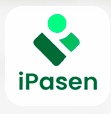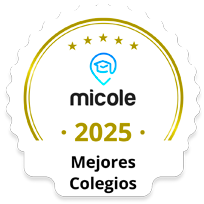Primary First Cicle
Welcome to Primary First Cycle at Platero Green School. The information is structured as follows:
Methodology
Primary First Cycle methodology is structured in different flaps. Click on the one you want to read and it will be unfolded and click again to close it.
The main features of this cycle are:
Between 6 and 8 years old.
Our classrooms are organized into subject enrichment areas. These areas are replicated in every classroom and both students and pupils use them on a daily basis, whether it be to enjoy the resources they offer or for pupils to express themselves with self-made materials.
The use of these areas is factored into our time-management plan, and they are adapted to suit all students, with a enough resources to cover a wide variety of interests.
Adjacent to the cycle’s classrooms, we have a comprehensive resource bank, which is managed by teachers in consonance with the content that is being developed. This means that the resources are renewed as the school year progresses.
Depending on the task that is going to take place, teachers will decide on the type of desk and chair distribution in the classroom. Generally, desks are set out in small groups, both for cooperative and individual learning sessions. This type of seating is key to foster peer collaboration. Teachers aim to configure balanced groups. The richer the variety of interests and needs, the richer the group experience. Whenever needed, once a term as standard, students change their position in the classroom. This intends to allow them all to interact and get to know each other throughout the cycle.
In order to develop our students’ competences, we employ a wide variety of methodological strategies: collaborative tasks, individual tasks, project-based learning, design of activities based on the multiple intelligence theory, investigations, role-playing, thought routines, etc.
We generally start with simple situations using manipulative materials and fun-based activities to achieve new learning. This allows them to experience their own learning, relate it to their previous ideas and construct new knowledge. Students are placed at the centre of their learning process, they experiment, build and use learning in other experiences, thus achieving the development of competences.
The development of personal autonomy and self-esteem is key within this methodological structure. Only when students feel capable and are offered the tools to act accordingly will they be able to access learning with confidence and motivation.
On a day-to-day basis, it is very important to correctly manage class rhythm changes, that is, the transition between different learning sessions and dynamics: story time, songs, relaxing music, short films, yoga, massages…. Accompanying our students in theses rhythm changes also forms part of their emotional education.
Learning to read marks the beginning of the adventure of reading, an adventure which, luckily, never ends. In our cycle we experience that magical moment in which many boys and girls begin to enjoy reading. We have the wonderful task of sewing that first seed of excitement, passion and discovery, that will make of our pupils future readers. We progress from playing with sounds, gestures and rhymes, to performing recitals, storytelling and doing drama, all of which will make us fall in love with reading forever. Through phonological awareness strategies and with the aid of Monfort gestures, students learn to simultaneously read and write in a fun and natural way, with the support of a rich and varied resource bank of manipulative material.
To nourish our reading we have a school library with large numbers of titles that are catalogued in the Seneca BiblioWerb portal, through which we can learn to use the municipal library system, as they both organize lending in the same way. We also have a classroom library, which is managed by the students themselves; and, for those moments of leisure in the playground, we have the “Bibliopatio” (playground library).
The development of mathematical competence is essential to deal with daily situations; we must analyse, search and find solutions to solve day to day problems.
The ABN method allows our students to make mental calculations quickly and confidently. They begin counting with materials they can manipulate, inventing situations and resolving problems intuitively. This natural and experience-based method allows them to understand what they are doing. Maths becomes a game that continually offers up new challenges, with all that this implies in terms of motivation towards new learning.
In Natural Sciences, Social Sciences and Physical Education.
The main objective of bilingualism in the First Cycle of Primary is the immersion in the English language. To this end, and without prejudice to the respective subject objectives, we propose parallelly, a progressive contact and development of our students’ communicative skills in English. All four linguistic skills are developed: listening, speaking, reading and writing. New elements are always introduced orally, with visual aids to support understanding. Reading and writing is introduced gradually in our cycle: initially, to support and consolidate language learning; and later, as an autonomous skill.
Through emotional education, students learn to recognise and manage their emotions, employing this knowledge to interact with others.
Emotional education is key, because to a great degree, our moods and the decisions we make depend on how we manage our emotions.
Our relationship with others and our environment is influenced by how we feel and how we perceive those around us. Education for peace, respect and harmony with others is part of our ethos, of life in our school.
To accompany our students, we follow an emotional education programme in which the School’s programme for values education converges with the theories and practises of Mar Romera and Alberto Ortega, who have both nourished us through various learning and development courses.
Environmental Education permeates everything we do at our school, we don´t work on it in any particular way, we live it in every possible way. Respect for the environment is experimented and learnt by respecting our immediate surroundings.
Recycling, caring for our surroundings, fostering healthy habits, working in our allotment, and the experiences gained from field trips and camping, the correct management of energy, water and valuable resources such as paper… all these things configure our experiences, building a shared conscience which we hope reaches our community, and subsequently our planet. Educating people to be conscious and feel responsible for our planet is the best way to save it.
First Cycle Classrooms have:
- Velleda Whiteboard.
- PC.
- Projector.
- Speakers.
- Internet access.
In addition, students can work in both of the IT classrooms, make use of the portable classroom (20 laptops) in their own class and develop projects through the mobile classroom, video cameras and other digital resources.
These resources enable interactive learning, data searches, product creation, etc.
The company that publishes the textbooks we use provides us with digital resources which we can access both in the classroom and at home. They are useful, fun based and motivating resources which can be projected in the classroom and usually serve as a platform to access new content.
The use of ICTE in the classroom improves inclusive learning, attending to diversity in a simple way, becoming one of the most important strategies in Universal Design for Learning.
Our premise is that learning isn’t only constructed in the classroom, but also out of school, in everyday life and through the various homework tasks and activities. Nevertheless, we are aware that homework should mainly focus on the development of competences, that is, it should put their knowledge into action and be of use in real life not just in school. To this end, just like with everything that has to do with education, it is essential that teachers, students and families work together very closely.
In line with our thoughts expressed on tasks and activities, and the opinion of the entire education community, who’s contribution supports our growth, our proposal for these classes presents the following characteristics:
TASKS
- Based on experiences, investigations and meaningful experiments.
- They are interdisciplinary whenever possible.
- The students are given written instructions for guidance.
ACTIVITIES
- They will only be for Spanish language and Maths in year 1; and Spanish language, Maths and English in year 2.
- Students will be asked to do the equivalent of 1 worksheet per week, covering the main content by way of revision for the students and follow up for parents.
Finally, we will consider the importance of the following:
- Personal study: students will receive guidance on how to programme the study time they need.
- It is essential to allow sufficient time for creative writing and pleasure reading. Spanish language teachers will provide strategies to promote both activities.
- Always, and above everything else, the individual treatment of each student will prevail, attending to their personal needs in a professional manner.
With a view to putting the focus on our students - establishing what they know (“knowledge”), what they can do with that knowledge (“know-how”) and their attitude towards what they know (“Learn to be and live together”), our assessment is centred on the implementation contexts, which differ depending on the subject. These contexts are assessed through activities, tasks, projects… in which students demonstrate proficiency in their learning, enabling them to develop competency skills and abilities.
Each subject matter will be graded with a numerical score (0-10), based on the appraisals extracted from the various implementation contexts using evaluation rubrics.
The educational community, through the School’s Annual Plan and website, is informed of the different contexts considered in the final assessment of each subject matter.
The assembly is part of our school’s idiosyncrasy. Being, as we are, an educational cooperative, students also organize and self-manage through the class assembly. Class assemblies occupy one session per week (oral expression).
One of the main principals is the distribution of tasks and responsibilities, which are democratically assigned in each class.
Likewise, in the assembly everybody has an assigned role:
- The class Secretary states the topics delt with in the previous assembly and takes the notes of the current one.
- The Chair explains the communication rules before starting and gives the floor to the speakers.
- All members of the class can put forward ideas, which are noted in the minutes of the meeting. When dealing with conflicts between two or more people or problematic situations, solutions are sought out and agreements are made, and will be revised in subsequent assemblies.
- One of the most interesting and enjoyable moments of the assembly is that of the “compliment”, where anybody can freely compliment someone or the whole group on something they believe is significant.
- Previously, during the week, “cariñogramas” (affection notes) are collected in a mailbox. In these short notes they can address a schoolmate to give thanks, apologise, show their affection, congratulate, etc. At the end of the assembly the “cariñogramas” are handed out.
School outings are organized and sequenced based upon the projects that are carried out in the cycle. All outings are related to topics that allude to syllabus content. Before the outing, previous knowledge is worked on using the outing “contract”. These contracts are a kind of themed teaching unit focused on the outing. They usually contain activities to be carried out during the outing, by way of a field notebook. And, after the visit, we resume the topic and expand to incorporate it to our project.
There are short outings, in the morning, and long outings, lasting all day.
Before each outing a circular letter is sent so that the family can authorise the student and draft any necessary comments. The monetary amount of the outing will be stated on referred circular and will be collected by the tutor at the beginning and end of the school day.
A meeting with the families is held prior to the end-of-school camping event, where we explain the nature of the activity and resolve any individual queries.
The family is a key pilar of education during infancy. Family-school collaboration always enriches the process and provides ideas and energy to move forward.
The school provides various ways for families to communicate and participate:
- Learning platform: through our platform, families are not only informed of the students learning process, but also of the school’s organizational processes. Furthermore, it offers the possibility to be in contact with teachers.
- Classroom: through this online suit we share curricular resources with families that can facilitate home learning and enrich school experiences. It also allows us to stay close to those pupils who, for whatever reason, must stay at home temporarily.
- Social networks: through Facebook, Youtube and Instagram we provide families with a graphic view of the different activities that take place in school.
- PA: the parents association in our school is very committed and takes an active part in our internal organization.
- Family delegates: at the beginning of the school year, each class democratically elects a family who will act as a link with the class tutor, thus establishing an important channel for first-hand information and participation. This is important role enhances communication, the organization of activities and proposals amongst families.
- Parent meetings: at the beginning of the school year, the families and the assigned class tutor attend a group meeting. In this initial contact all the new school year details are presented, and any queries are answered. Additionally, throughout the year, individualized meetings (tutorials) are held upon request of the families or at the discretion of the tutor.
Teachers of this Cycle
Introduction

Lydia Paniagua González (Coordinator)
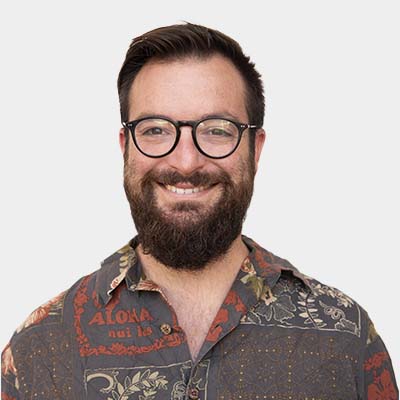
Pablo López Muñoz
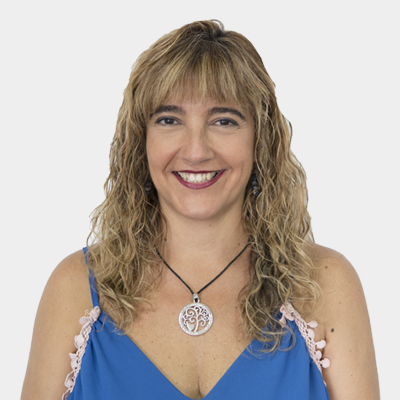
Inmaculada Díaz Díaz

Pablo Merino Vázquez
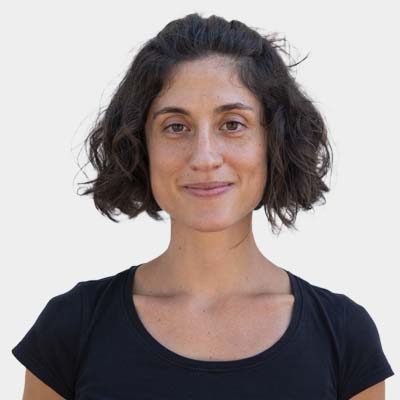
Helena Muñoz Blanco
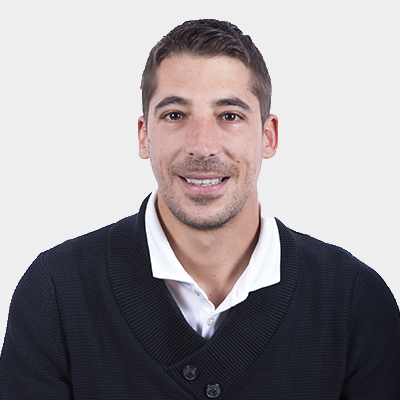
Rafael Clavero Sánchez
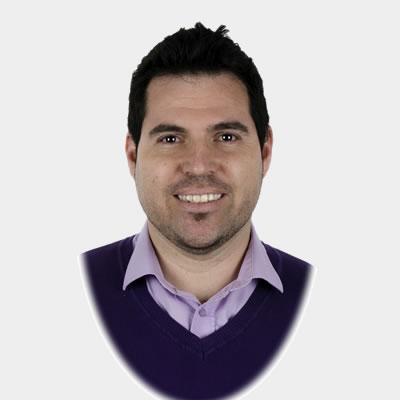
Salvador González Vázquez
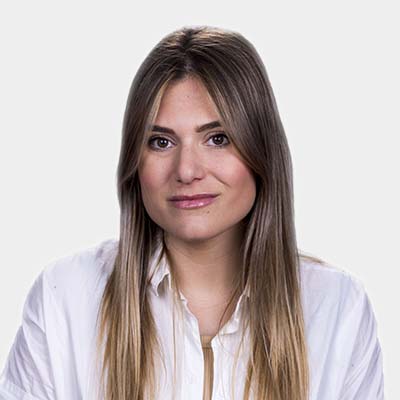
Alba Solano Jiménez

Argeme González Pizarro
School Trips
| Course | Date | Activity | |
|---|---|---|---|
| 1º y 2º | 17/10/2024 | Ciencia Divertida | |
| 2º | 18/11/2024 | Vivero Provincial Vélez | |
| 1º | 19/11/2024 | Vivero Provincial Vélez | |
| 1º y 2º | 18/12/2024 |
Museo Picasso |
|
| 1º y 2º | 11/02/2025 |
Teatro "Amigos Invisibles" |
|
| 1º y 2º | Marzo 2025 |
Casabermeja |
|
| 1º y 2º | 29/04/2025 |
Cientacuentos |
|
| 1º y 2º | 17/06/2025 |
Acampada |
Textbooks Course 2025/2026
1st Primary year
| Subjects | Books Title | Publishing House |
|---|---|---|
| Conocimiento del medio | Conocimiento del Medio. Operación mundo | Anaya |
| Educación Física | Educación Física 1 | Anaya |
| Lengua | Lengua 1. Rutas | Anaya |
| Matemáticas | Matemáticas ABN 1 | Anaya |
| Música | Música 1 | Anaya |
| Plástica | Plástica 1. Operación mundo | Anaya |
| Religión Católica | Religión Católica 1 | Anaya |
| Inglés | Open Up 1 Class Book Pack+ALK with Class Book ebook | Oxford |
2nd Primary year
| Subjects | Books Title | Publishing House |
|---|---|---|
| Conocimiento del medio | Conocimiento del Medio. Operación mundo | Anaya |
| Educación Física | Educación Física 2 | Anaya |
| Lengua | Lengua 2. Rutas | Anaya |
| Matemáticas | Matemáticas ABN 2 | Anaya |
| Música | Música 2 | Anaya |
| Plástica | Plástica 2. Operación mundo | Anaya |
| Religión Católica | Religión Católica 2 | Anaya |
| Inglés | Open Up 2 Class Book Pack+ALK with Class Book ebook | Oxford |

